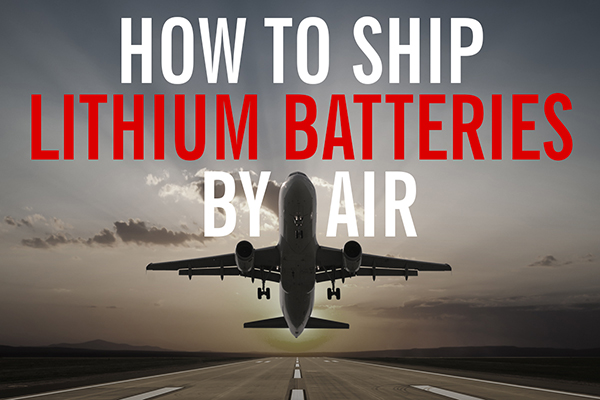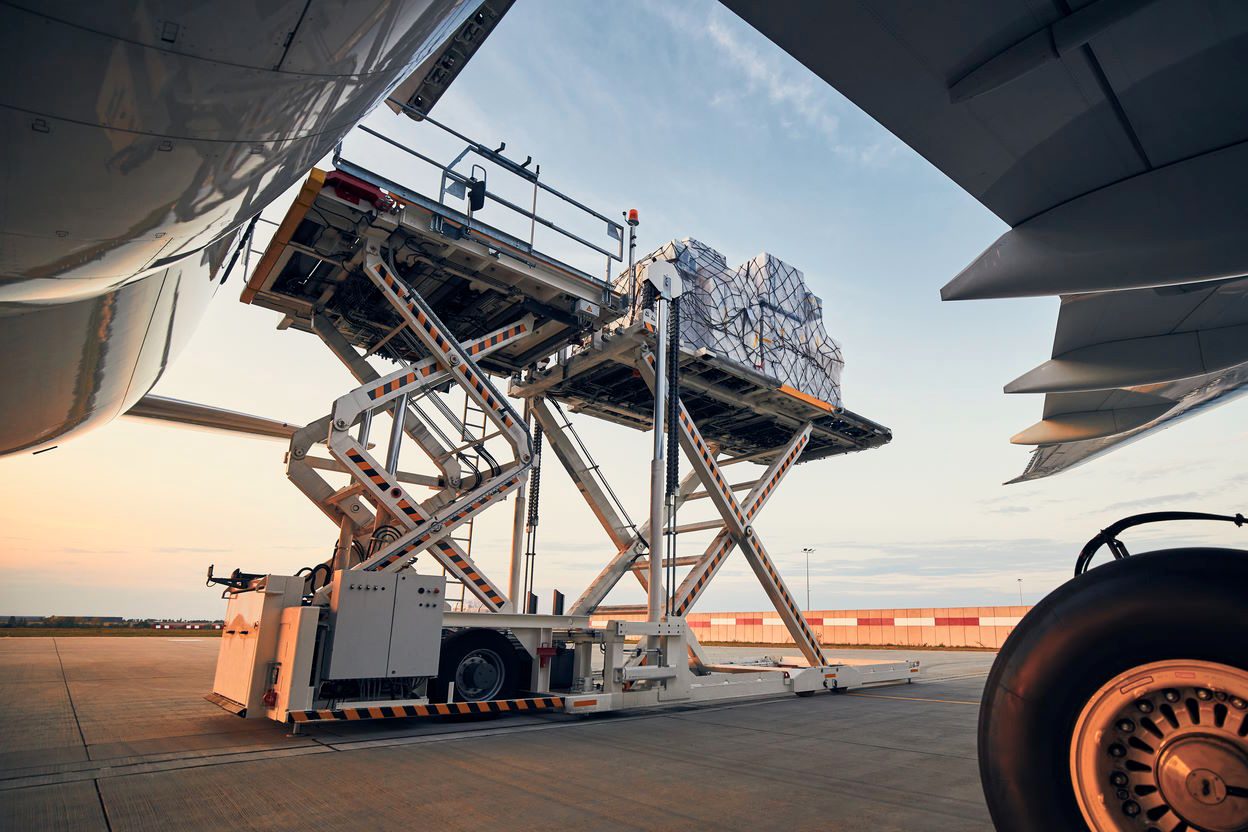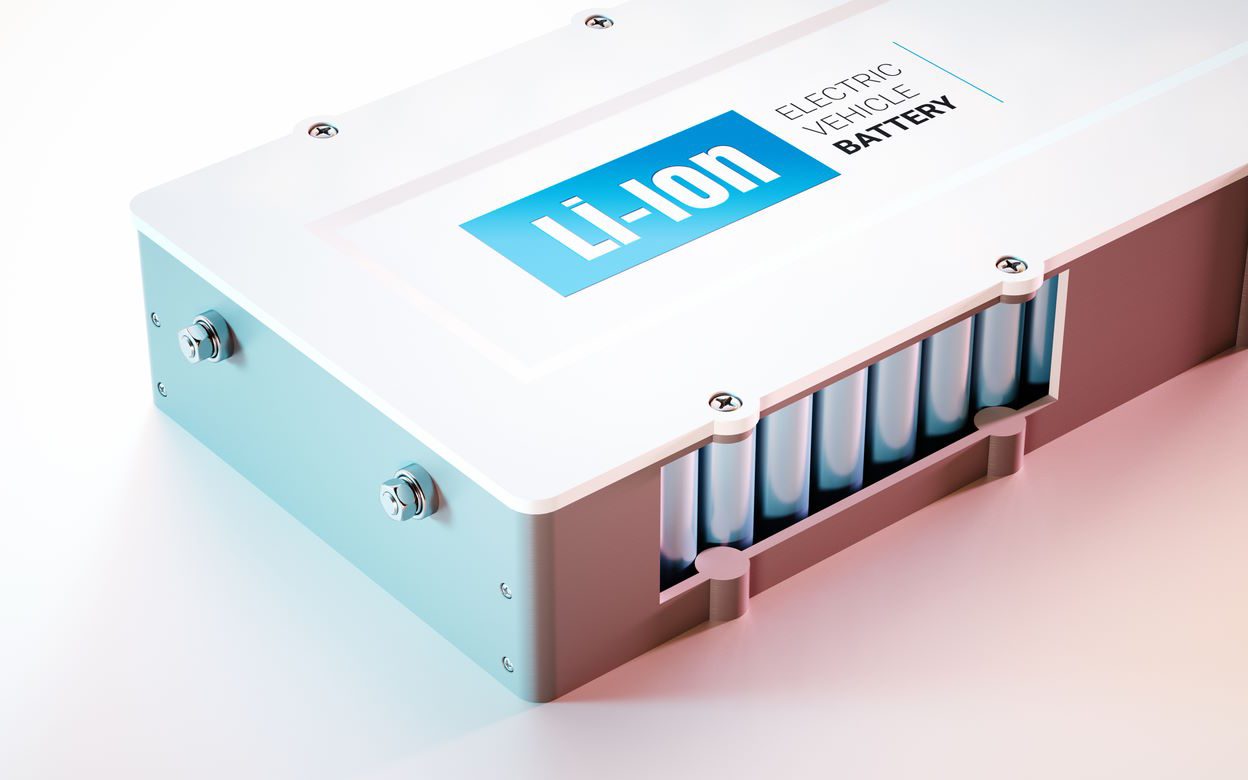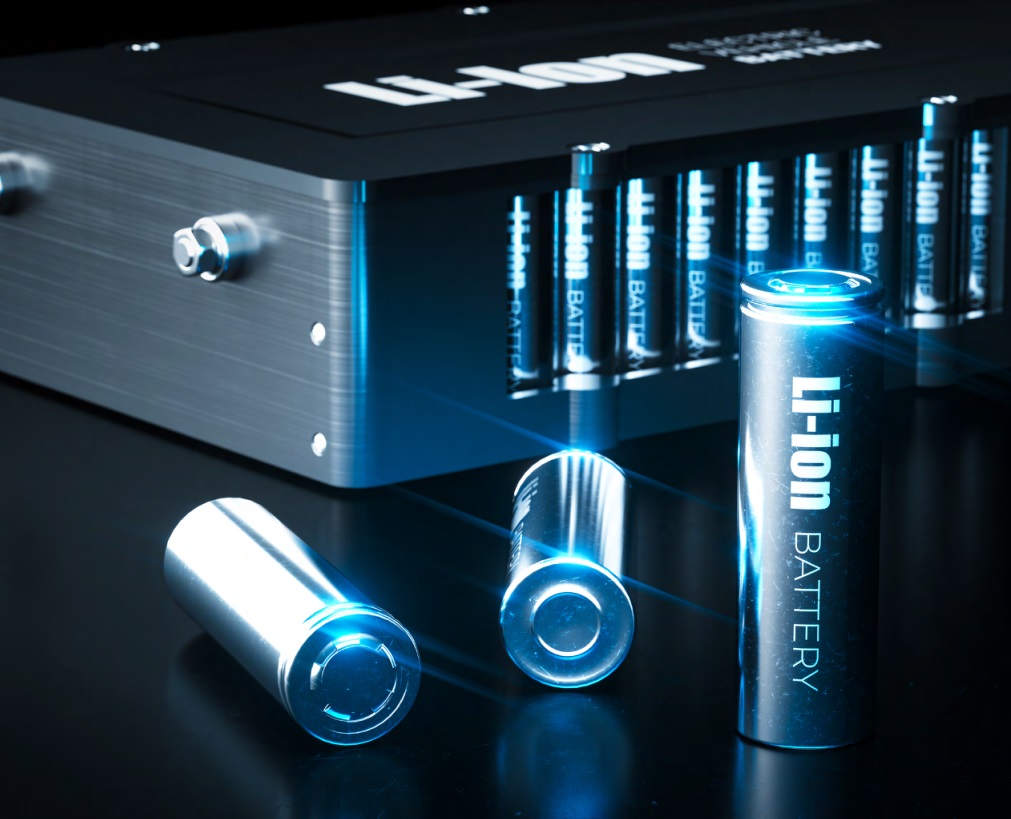Portable computers, cordless tools, mobile phones, watches, wheelchairs, and automobiles are just a few of the many common items powered by lithium cells and batteries. The convenience of lithium cells and batteries has become indispensable in our ever-more-mobile world. There has been a consistent increase in the number of high-powered devices available due to the increased energy density of modern lithium cells and batteries. The requirement to control and mitigate risks grows in tandem with the density of available energy. It is the responsibility of shippers to mitigate this risk and avoid incidents, such as fires on board transport trucks, to a significant degree.
U.S. law classifies lithium batteries as a dangerous substance. Regulations pertaining to hazardous materials as set out by the Department of Transportation (DOT) (HMR; 49 C.F.R., Parts 171-180). Any material that the DOT deems could reasonably endanger health, safety, or property while being moved in commerce is subject to the HMR. Be it by air, highway, rail, or water, lithium batteries must meet all relevant HMR standards before being offered for transportation.

l Devices that include batteries are subject to particular shipping and packaging rules since they are considered hazardous products.
l Before being shipped, lithium batteries weighing above 35 kilogrammes must have the green light from the relevant national authority.
l Ensure that the shipment is clearly marked to indicate the presence of lithium batteries or hazardous materials.
Batteries are the power source for a lot of modern goods. Shipping these things all around the globe is just par for the course. The issue here is that improper packaging and shipment of these batteries might cause harm and endanger people. If you want to know how to safely ship lithium batteries, this article is for you.
Lithium cells and batteries can be hazardous depending on their size, chemistry, and type. Chemical (e.g., electrolytes that are corrosive or combustible) and electrical risks can be associated with lithium cells and batteries. Modern lithium batteries have an extraordinarily high energy density and, in contrast to traditional alkaline batteries, typically include a combustible electrolyte. Short circuits, physical damage, faulty design, or assembly are among the situations that might cause them to overheat and ignite. Lithium cell and battery fires, once started, aren't often easy to put out. Thermal runaway, a chain reaction that violently releases stored energy and combustible gas, can occur in lithium cells and batteries, albeit it happens seldom. This thermal runaway has the potential to spread to surrounding batteries or combustible materials, which might cause massive fires with disastrous results.
Even after they've served their purpose in consumer goods, lithium batteries still present a fire risk. The risk of a short circuit, heat release, or fire is higher with damaged, faulty, or recalled lithium batteries compared to undamaged batteries. Not only must the terminals be covered to avoid short circuiting, but the potential for fire dangers during shipping must also be thoroughly assessed by anyone offering a used lithium battery for disposal or recycling.
Important steps for getting old battery packs ready for recycling or disposal are outlined in the Safety Advisory Notice, which also provides links to other resources.
Data From the Environmental Protection Agency
The Resource Conservation and Recovery Act (RCRA) imposes rules on the disposal of used lithium ion batteries by the Environmental Protection Agency (EPA). A memorandum released by the EPA in May 2023 sought to elucidate the specifics of the lithium ion battery's application to the universal waste and recycling hazardous waste laws.
Private People and Domestic
Due to safety concerns, individuals should only dispose of household lithium batteries through proper recycling channels. Never throw away or recycle lithium batteries in the trash. You can locate local electronics recyclers or scrap/collection centres by searching the Internet. Retailers that recycle lithium batteries include some supermarkets, hardware stores, home improvement centres, and electronics retailers. On top of that, there can be a programme or regular collection events hosted by your local solid waste district for lithium batteries. There might be a mail-in programme offered by the company that made your electrical device. When sending items through the United States Postal Service (USPS) or any other carrier, you are required to follow all regulations set out by the Department of Transportation (DOT). To ensure that your shipments comply with USPS and/or DOT regulations, you should ask the organiser of your mail-in programme for specific instructions.
Ensuring compliance with the HMR is crucial for the safety of all packages, whether they include a single battery, a pallet of batteries, or a product powered by batteries. Fines or even criminal prosecution could come from not following the relevant regulations. For specific requirements regarding the transportation of lithium batteries, including those found in electronic devices, please refer to 49 CFR 173.185 and the resources provided below.
All transportation-related lithium cells and batteries must have met the design requirements outlined in Section 38.3 of the UN Manual of Tests and Criteria. Manufacturers of lithium cells and batteries are required to make requestable test summary documents available from January 21, 2022. To guarantee that transportable lithium cell and battery designs adhere to UN 38.3 test standards, the test summary incorporates a defined set of components that enable accountability and traceability.
Get the test summary sheet or ask the battery maker, distributor, or vendor whether they know whether a certain battery design has passed these tests.
A webpage dedicated to the safety of lithium batteries, particularly those used in aviation, is maintained by the Federal Aviation Administration (FAA).
One of the many resources made available by the FAA as part of their SafeCargo programme is a chart detailing the correct way to transport lithium ion and lithium metal batteries when transporting them by flight.

There are lithium-ion batteries in a lot of things you use on a daily basis, and you might not even know it. Plus, these goods are being sent all across the globe since more and more people are shopping online. Careful mailing of these products and batteries is of the utmost importance. Here are a few examples of consumer goods that utilise these batteries:
l Flat tops
l Oral pills
l Cellular telephones
l iOS devices
l Tablet computers
l Medical equipment
l Power tools are essential.
l Tools for measuring
l Drones
Automatic external defibrillators are known as AEDs.
All of these gadgets include batteries, which are, for good reason, considered dangerous products. Your shipments must adhere to shipping requirements for lithium batteries for the following reasons:
l Incorrect packaging can cause them to be highly combustible and lead to fires.
l Environmental variables trigger sensitive reactions in them.
l Their short-circuiting probability is greater.
This being said, it is of the utmost importance that merchants and their selected delivery providers thoroughly check that these lithium batteries are declared, packed, labelled, and kept correctly before shipment.
"Can you mail batteries?" is a question that many have asked.And if you're looking for a quick answer, the answer is yes. However, there is a bit more work involved than just mailing in your batteries. Hiring a reliable courier with specific protocols for transporting lithium batteries will lessen the likelihood of an explosion or other harm occurring during shipment. Among them are
l Federal Express
l USPS
l UPS
l DHL.
The most important reason to choose these couriers to transport your lithium batteries by land, sea, or air is that they employ people with extensive training in the proper handling and operation of lithium batteries. Shipment of these batteries is subject to specific rules, which they are well-versed in.
You must adhere to specific rules and regulations if you intend to ship lithium batteries. Among these, you may find:
l Before being shipped, lithium batteries weighing above 35 kilogrammes must have the green light from the relevant national authority.
l Lithium batteries that are defective or damaged should not be moved.
l To avoid short circuits when being transported, batteries must be properly wrapped.
l Prior approval from both the national authorities and the airline is required before waste lithium batteries intended for recycling can be transported by air.
l Be sure to mark any package containing a lithium battery shipping label as dangerous goods and ensure it has all the required documentation.
l Specialised packaging could be required to guarantee the safety.
The anode in these batteries is lithium. They may generate 1.5V to 3.7V and last for a long time. Nevertheless, not all delivery services will accept packages that have lithium metal batteries. As an example, the DHL Time Definite Service is not allowed to transport any loose lithium metal batteries.
Rechargeable lithium-ion batteries are a common component of many portable consumer gadgets due to its major feature. You are not allowed to bring these batteries on a plane. Nevertheless, several couriers will accept these batteries in a neatly wrapped form due to the widespread use of these batteries in products. One company that takes lithium-ion batteries is DHL Express.

Governments, delivery services, and airlines all have regulations around batteries, and for good cause. Carelessness with them can have disastrous and difficult-to-manage results.
You may not be able to get your battery where it needs to go if your shipment is denied by your selected courier because you did not comply with these rules.
On the other hand, more severe repercussions may await you if you are discovered mid-declaring your products. Today, inspections of hazardous items are conducted to ensure compliance. Failure to comply can result in fines reaching tens of thousands of dollars, as well as the possibility of your firm being blacklisted and therefore unable to ship.
Regrettably, grave repercussions might also arise from failing to comply. Your battery shipment could cause a fire or other hazardous condition if it doesn't comply with regulatory criteria. This could be due to improper packaging or mislabeling. Many people have lost their lives in plane crashes and watercraft sinkings because of this.
Verify that your shipments comply with battery shipping standards to guarantee your safety. A few pointers for the secure shipment of lithium batteries:
l Avoid short-circuiting by adequately protecting the batteries and terminals.
l Place insulating, non-conductive materials over the terminals.
l Put the terminals of each battery in a completely sealed internal container.
l Keep heavy objects away from packed batteries.
l Batteries should not be near any other metal items that could lead to a short circuit.
l While devices with batteries attached are being transported, make sure not to turn them on.
l To avoid inadvertent activation while in transportation, cover the switches of any equipment that uses these batteries.
l Keep batteries away from extremely hot environments.
l Make sure that the batteries in the gadgets are not broken or positioned wrongly.
l Protect the device against inadvertent activation by padding it while it's in the package.
l Make it clear on the shipment's label whether it contains lithium batteries or hazardous materials.
There are a lot of hoops to pass through before you can get consumer goods or devices with lithium batteries installed to your clients if your eCommerce business requires you to ship them. That's because delivering products that have batteries is far more intricate than sending goods without batteries.
Numerous rules and restrictions imposed by various governmental bodies, international organisations, and courier services must be followed. Possible rules and regulations included in these recommendations are:
l You must obtain approval from the national authorities or courier before your merchandise may be shipped.
l Making sure the package has the correct label (a "Dangerous Goods" label may be necessary).
l As an example, specific boxes or insulating material may be needed for packing the package in accordance with the given criteria.
l The person packing your shipment may need to have a current HazMat certification.
Obtaining the necessary paperwork and certifications is often a prerequisite to having your goods picked up by a courier. If your goods contains lithium batteries, you may be required to provide the following documentation before shipping it; however, you should verify with your courier to see if they have any other requirements:
l If your shipment includes lithium batteries, you may be asked to sign an additional contract by certain couriers like UPS. This is determined on an individual basis, therefore it's important to verify if this is required for your specific shipment.
l If your consignment contains potentially hazardous items, your airline or courier may request to examine the Material Safety Data Sheet (MSDS) before accepting it.
l This certificate, which attests that your battery has been tested in accordance with UN standards and may be transported safely, may be requested of you.
It will take some time to gather all of these certificates, approvals, and paperwork. The documentation and testing process can take months at times, and that's presuming your batteries and products pass all inspections.
You can only use these documents to book shipments up until the date they expire, which is one year from now. In order to avoid keeping your backers waiting for their shipments after the campaign ends, it is crucial to plan for this alongside your campaign. Make sure to get the time right.

For what reasons are lithium batteries subject to so many transportation restrictions?
Many shipping limitations exist because lithium-ion batteries have the potential to catch fire if they are damaged while in transit.
How charged are lithium batteries before they are sent?
It is not possible for lithium-ion batteries to be shipped with a capacity more than 30% of their maximum.
Are lithium-ion batteries more expensive to ship?
Shipments of potentially hazardous materials, such as lithium-ion batteries, may incur extra costs from your chosen courier.

扫码关注
We use cookies to understand how our audience uses our site.
Renon Power websites use cookies to deliver and improve the website experience. See our cookie policy for further details on how we use cookies. Privacy Policy